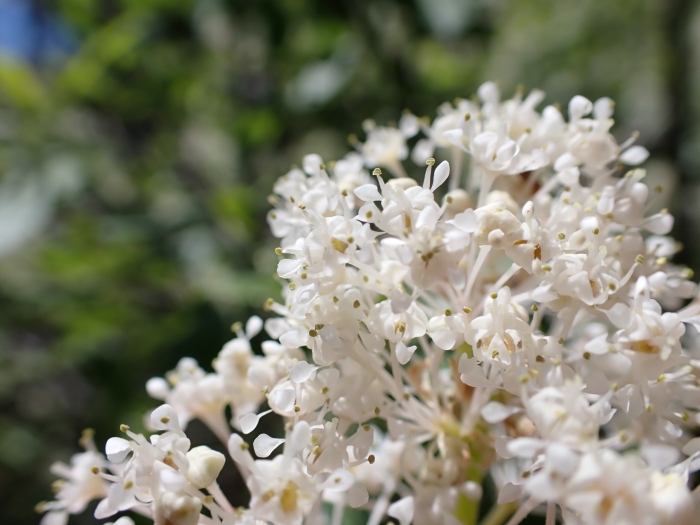Redstem Ceanothus
(Ceanothus sanguineus)
Redstem Ceanothus (Ceanothus sanguineus)
/
/

Matt Lavin
CC BY 4.0
Image By:
Matt Lavin
Recorded By:
Copyright:
CC BY 4.0
Copyright Notice:
Photo by: Matt Lavin | License Type: CC BY 4.0 | License URL: http://creativecommons.org/licenses/by/4.0/ | Rights Holder: Matt Lavin | Publisher: iNaturalist | Date Created: 2022-06-25T13:40:33-07:00 |

























Estimated Native Range
Summary
Ceanothus sanguineus, commonly known as Redstem Ceanothus, is a deciduous shrub native to the Pacific Northwest of North America, specifically from British Columbia to northern California. It typically inhabits open woodlands, forest edges, and dry slopes within temperate coniferous forests. This species can reach up to 10 feet in height and spread 6-8 feet wide. Redstem Ceanothus is characterized by its striking red to purple stems and lush green foliage. From late spring to early summer, it produces showy clusters of tiny, fragrant white flowers that attract pollinators.
In cultivation, Redstem Ceanothus is valued for its wildlife support, as it provides food for wild ungulates and is a host plant for several butterfly species. Its nitrogen-fixing roots enrich the soil, making it a beneficial addition to restoration projects and native plant gardens. It is also used as an ornamental shrub in residential landscapes and can be pruned to form a dense hedge. This shrub prefers full sun to partial shade and thrives in well-drained soils. It is drought-tolerant once established, making it suitable for xeriscaping. While generally low-maintenance, it can be susceptible to root rot if overwatered and may attract pests such as aphids.CC BY-SA 4.0
In cultivation, Redstem Ceanothus is valued for its wildlife support, as it provides food for wild ungulates and is a host plant for several butterfly species. Its nitrogen-fixing roots enrich the soil, making it a beneficial addition to restoration projects and native plant gardens. It is also used as an ornamental shrub in residential landscapes and can be pruned to form a dense hedge. This shrub prefers full sun to partial shade and thrives in well-drained soils. It is drought-tolerant once established, making it suitable for xeriscaping. While generally low-maintenance, it can be susceptible to root rot if overwatered and may attract pests such as aphids.CC BY-SA 4.0
Plant Description
- Plant Type: Shrub
- Height: 3-12 feet
- Width: 3-12 feet
- Growth Rate: Slow
- Flower Color: White
- Flowering Season: Spring, Summer
- Leaf Retention: Deciduous
Growth Requirements
- Sun: Full Sun, Part Shade
- Water: Low, Medium
- Drainage: Fast, Medium
Common Uses
Bee Garden, Bird Garden, Border Plant, Butterfly Garden, Low Maintenance, Showy Flowers
Natural Habitat
native to the Pacific Northwest of North America, specifically from British Columbia to northern California
Other Names
Common Names: Prairie Redroot, Buckbrush, Teatree, Wild Lilac, Red-Stemmed Ceanothus, Oregon Tea Tree
Scientific Names: , Ceanothus sanguineus, Ceanothus oreganus,
GBIF Accepted Name: